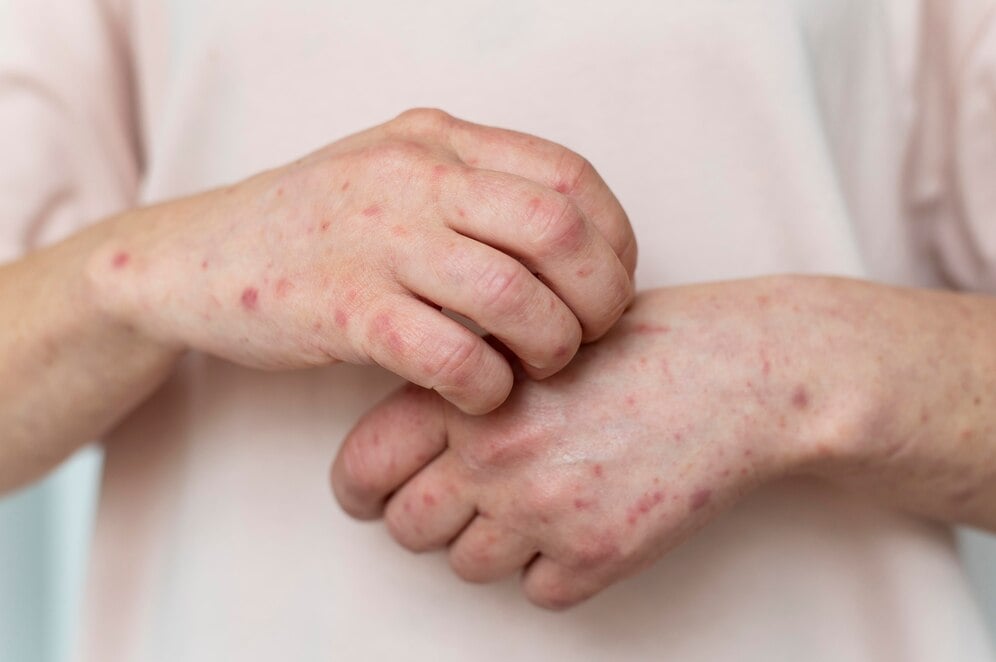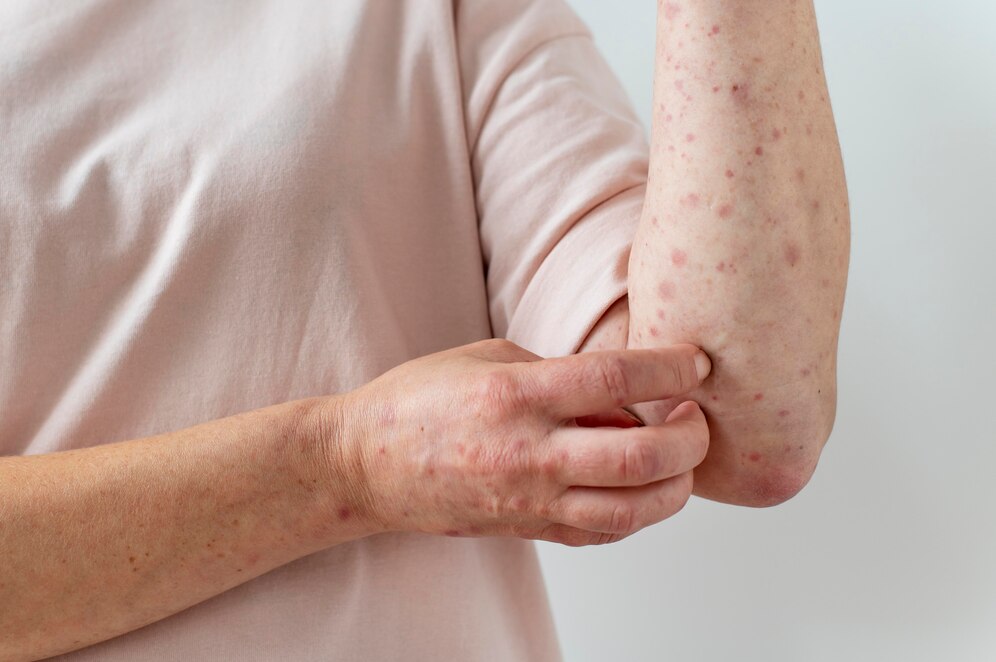Understanding Eczema: Types, Symptoms, and Treatment Options
Eczema, or atopic dermatitis, is a prevalent skin condition that affects individuals of all age groups, including children, adults, and the elderly. In this guide, we'll delve into the various types of eczema, common symptoms, and available treatment options to help you manage this chronic skin condition effectively.
Types of Eczema:
Atopic Dermatitis: The most common form of eczema, characterized by dry, itchy, and inflamed skin, often appearing on the face, inside the elbows and behind the knees, and on the hands and feet.
Contact Dermatitis: Occurs when the skin comes into contact with irritants or allergens, leading to redness, itching, and sometimes blistering. Common triggers include certain soaps, fabrics, lotions, and allergens like pollen, fur, and animal dander.
Nummular Eczema: Presents as coin-shaped patches of irritated skin, often on the arms, legs, or torso. It can be triggered by dry skin, environmental factors, or allergic reactions.
Dyshidrotic Eczema: Characterized by small, itchy blisters that develop on the hands and feet, often accompanied by redness and swelling. Stress, allergies, and exposure to irritants can trigger flare-ups.
Symptoms of Eczema:
- Dry, rough, and scaly skin
- Itching, which may be intense and worsen at night
- Red or inflamed patches of skin
- Thickened or leathery skin
- Cracking or oozing of the skin, especially in severe cases
Treatment Options for Eczema:
Oral Antihistamines: These medications help relieve itching and reduce allergic reactions, providing relief from eczema symptoms.
Skin Creams and Moisturizers: Regular application of emollients and moisturizers helps hydrate the skin, reducing dryness and preventing flare-ups.
Light Therapy (Phototherapy): Controlled exposure to UV light can help reduce inflammation and itching associated with eczema, promoting skin healing.
Good Skin Care Practices: Avoiding harsh soaps, fragrances, and other irritants, and maintaining a proper skincare routine can help prevent eczema flare-ups and improve overall skin health.
Preventive Measures for Eczema:
- Identify and avoid triggers that worsen eczema symptoms, such as allergens, irritants, and stressors.
- Use gentle skincare products and moisturizers suitable for sensitive skin.
- Keep the skin well-hydrated by drinking plenty of water and using moisturizers regularly.
- Practice good hygiene and avoid scratching or rubbing affected areas to prevent skin damage and infection.
Conclusion:
Eczema is a chronic skin condition that can significantly impact an individual's quality of life. By understanding the different types of eczema, recognizing common symptoms, and implementing appropriate treatment and preventive measures, individuals can effectively manage their eczema and enjoy healthier, more comfortable skin. If you're experiencing symptoms of eczema, consult a dermatologist or healthcare provider for personalized evaluation and treatment recommendations.

